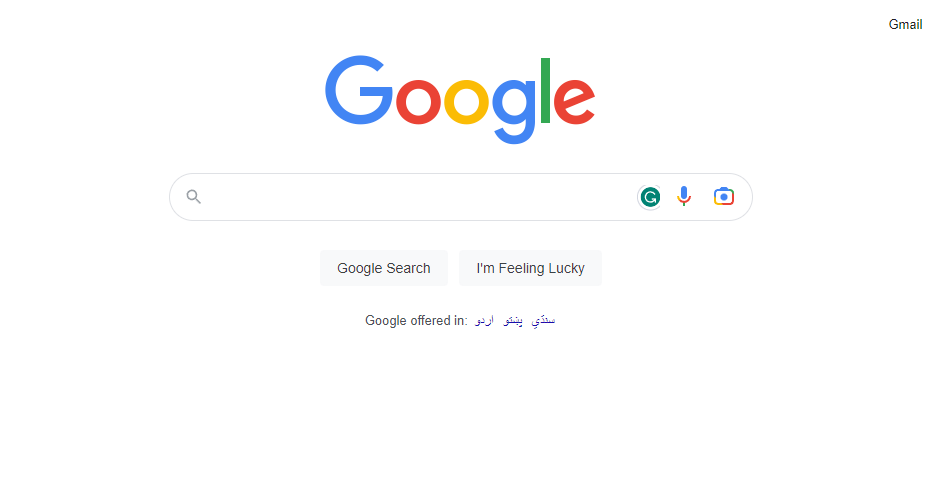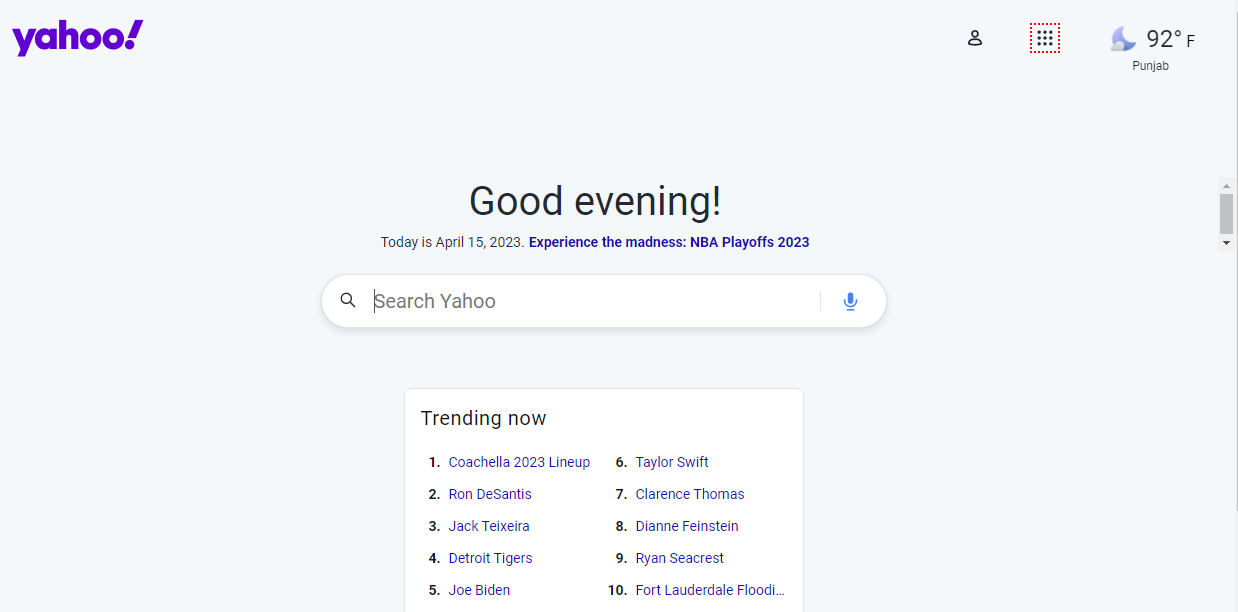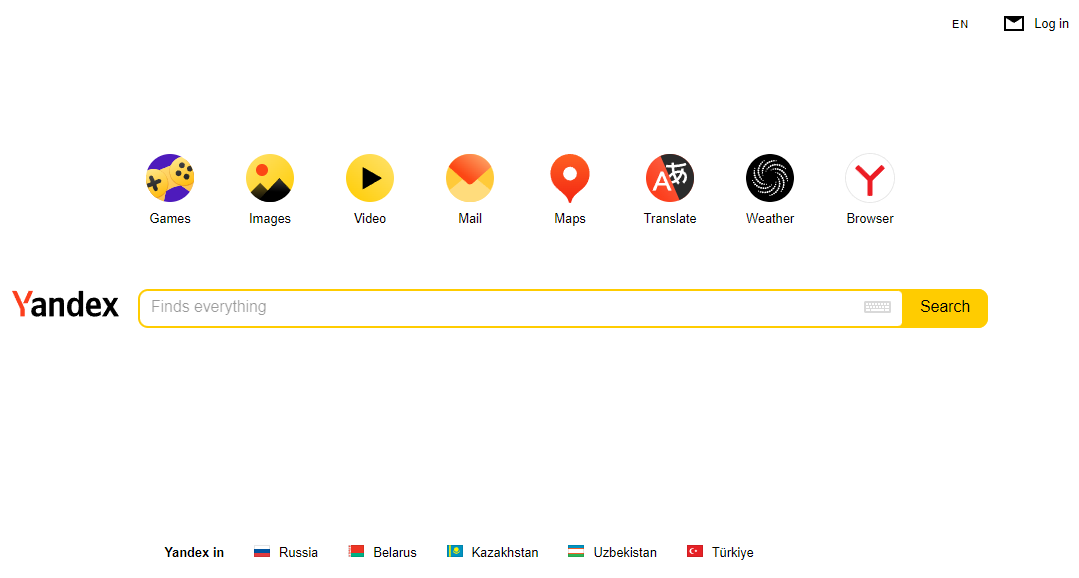Search engines have become an essential part of our daily lives, helping us find information on just about anything we need.
While Google is the most well-known search engine, there are many other search engines available that offer unique features and functionalities.
This article will explore the top 10 search engines list, including their market share, key features, and pros, and cons.
Google:
Undoubtedly Google is the world’s most popular search engine, with an estimated 93.18% market share as of 2024.
It is used by billions of people worldwide to find information on the internet.
The search engine’s popularity can be attributed to its advanced algorithms and artificial intelligence, which provide the most relevant and accurate search results to users.
Google also offers many services, including email (Gmail), cloud storage (Google Drive), and video streaming (YouTube), making it a one-stop shop for many internet users.
Google also has introduced a chatbot named BARD that can answer all of your queries in a human-like way.
Google always comes first in the top 10 search engine list.
Pros:
- Offers a chatbot (BARD) to its users
- You can find almost any type of information on Google
- Advanced algorithms and artificial intelligence provide accurate and relevant search results
- Additional useful services like email, cloud storage, and video streaming
- User-friendly interface and easy to navigate
- Offers a variety of features, such as Google Maps and Google Translate
- Continuously updates and improves its services and search algorithm
Cons:
- Collects a significant amount of user data, raising privacy concerns
- Some people believe it has too much control over the internet
- Advertisements can sometimes make it difficult to distinguish between organic and paid search results
- Google’s algorithms are not perfect and can sometimes display inaccurate or irrelevant results (But very rarely)

YouTube:
YouTube is the second-largest search engine in the world, with over 2.68 billion (increasing continuously) monthly active users.
Owned by Google, YouTube is a video-sharing platform where users can upload, view, and share videos on different types of topics.
It is an incredibly popular platform, with millions of hours of video content being watched every day.
One of the key reasons for YouTube’s popularity is its vast library of content.
From educational videos to music videos and everything in between, there is something for everyone on the platform.
YouTube’s algorithms and recommendation system suggest videos based on a user’s viewing history, making it easy to discover new and relevant content.
YouTube also offers features, such as the ability to comment, like, and share videos, as well as the ability to create and manage channels.
The best thing is, it also allows users to earn money through its Partner Program, which enables creators to monetize their videos through advertising.
Pros:
- Huge library of content on a wide range of topics
- User-friendly interface and easy to navigate
- Advanced algorithms and recommendation system for personalized content suggestions
- Ability to comment, like, and share videos
- Provide the opportunity to earn money through its Partner Program
Cons:
- Concerns over inappropriate content and moderation
- Can be addictive and a time-waster for some users
- Some creators may feel that the Partner Program is not transparent or fair
- Advertisements can sometimes be intrusive and annoying

Bing:
Bing is another large search engine in the world, with an estimated 2.87% market share in 2024.
Although it is significantly smaller than Google, it is still a major player in the search engine market.
Bing is owned by Microsoft and offers a variety of search options, including web, image, video, and news searches.
It also offers features such as Bing Rewards, which allows users to earn points for using the search engine.
The major difference between Bing and Google is their approach to search results.
Bing places a greater emphasis on visual search, offering features like image and video search, and offering a more visually-oriented interface.
Bing also integrates social media results into its search engine, displaying relevant posts and tweets alongside traditional search results.
In my opinion, Bing is improving day by day, and it has now launched its own chatbot in the world of AI, similar to Google’s BARD. Bing’s chatbot is called ‘Bing AI’.
Pros:
- Has Bing AI chatbot and AI image creator
- Emphasizes visual search, offering a range of features such as image and video search
- Integrates social media results into search, displaying relevant posts and tweets
- Offers a more visually-oriented interface
- Default search engine for Microsoft’s Edge browser and integrated into Windows 10’s Cortana personal assistant
- Offers feature such as Bing Translator and Bing Maps
Cons:
- Has a smaller market share compared to Google, leading to potentially fewer search results and less accurate results
- Advertisements can sometimes make it difficult to distinguish between organic and paid search results
- Some people may find it less user-friendly compared to Google
- Bing Rewards program may not be as attractive as other loyalty programs offered by competitors

Yahoo:
Yahoo is a popular search engine that was once one of the leading players in the search engine market.
It was founded in 1994 and has since expanded to offer multiple services, such as email, news, and finance.
However, in recent years, Yahoo has faced significant competition from other search engines such as Google and Bing, resulting in a decline in its market share.
Yahoo is also known for its different homepage, which serve as a portal to a variety of services such as news, weather, and sports.
Additionally, Yahoo offers several search options, including
- Web
- Image
- Video searches
Yahoo’s search engine also provides the ability to customize search results based on a user’s preferences.
Pros:
- Yahoo homepage has a trending now section that tells the trending search terms
- Multiple useful options, including web, image, and video search
- Ability to customize search results based on user preferences
- Yahoo Finance and Yahoo News are popular and useful services for investors and news consumers
- Yahoo email is a popular alternative to other email services
Cons:
- Advertisements can sometimes be intrusive and annoying
- Some people may find Yahoo’s interface outdated compared to other search engines

Baidu:
Baidu is a popular search engine in China, often referred to as the “Google of China.”
It was founded in 2000 and has since expanded to offer a range of services, such as maps, news, and a cloud storage platform.
Being the largest search engine in China, Baidu has a dominant market share in the country, with over 48.56% of the market share in China and 0.42% of the market share worldwide as of 2023.
Baidu can also be integrated with other services like video streaming platforms, which is highly helpful for Chinese users.
Just like other search engines, Baidu offers many search options, including web, image, and video searches.
A unique option from Baidu is voice search capabilities.
Pros:
- A dominant search engine in China with a vast market share
- Integration with other popular services
- Has a voice search feature
- Baidu Maps is a popular and useful service for Chinese users
- Baidu’s cloud storage platform is a popular alternative to other cloud storage services
Cons:
- Baidu has faced criticism for its censorship practices and its cooperation with the Chinese government
- The interface is not high so high class
- Advertisements can sometimes be intrusive and annoying

Yandex:
Yandex is a search engine that is widely used in Russia and was established in 1997.
It has since expanded to offer a range of services, such as maps, news, and a cloud storage platform.
As the largest search engine in Russia, Yandex has a dominant market share in the country, with over 57.04% of the market share.
One of its most notable features is its ability to understand the intricacies of the Russian language.
Yandex can also be integrated with other services, like streaming, shopping, and taxi booking, making it a one-stop shop for its Russian users.
Yandex search engine, similar to Baidu, provides users with web, image, and video search capabilities, in addition to the ability to conduct searches through voice input.
Pros:
- A dominant search engine in Russia with a vast market share
- Integration with other popular services such as music streaming, shopping, and taxi booking
- Yandex Maps is a popular and useful service for Russian users
- Yandex Disk, the cloud storage platform, is a popular alternative to other cloud storage services
Cons:
- Yandex’s interface is less user-friendly compared to other search engines
- Advertisements can sometimes be intrusive and annoying
- Some users may have concerns over the quality and accuracy of search results on Yandex.

DuckDuckGo:
Founded in 2008, DuckDuckGo is a search engine that prioritizes user privacy.
Its mission is to provide users with private and secure searches without collecting or sharing personal data.
Unlike other search engines, DuckDuckGo does not store any user data or search history, which is why it is a popular choice for privacy-conscious individuals.
The primary feature of DuckDuckGo is its focus on privacy, with the search engine employing serval privacy features like no targeted ads and encrypted searches.
Pros:
- Focus on privacy and security, with no collection or sharing of user data or search history
- No targeted ads, allowing for a more streamlined and personalized search experience
- Offers multiple search options, like web, image, and video search, and voice search
- Encrypted searches for added security
Cons:
- Limited search results compared to other search engines due to its focus on privacy
- Some websites may block or limit access to DuckDuckGo users
- The search engine may not be able to provide as personalized search results as other search engines

Ask:
Ask.com, formerly known as Ask Jeeves, is a search engine that prides itself on providing users with answers to their questions.
Its interface allows users to ask a question in natural language and receive a direct answer rather than a list of websites.
This makes it a great option for those looking for specific information.
Apart from providing a Q&A format, Ask also provides web, image, and video search features, and allows users to access news and weather updates.
Its range of search options and its focus on providing direct answers make it a popular choice among users looking for quick and easy information.
Pros:
- User-friendly interface that allows for conversational searches
- Provides access to a range of search options and other services, such as news and weather updates
- Offers a unique approach to search by focusing on answering specific questions
- More customization options, including the ability to save favorite searches and view search history
Cons:
- Limited market share compared to other search engines, resulting in a potentially smaller pool of search results
- The interface can be less streamlined compared to other search engines
- Ask’s focus on specific questions may not provide as comprehensive search results as other search engines

Naver:
Naver is a popular search engine from South Korea, founded in 1999.
It is the biggest search engine in South Korea and offers various services such as web, image, video, and news searches, as well as online shopping and email access.
Naver focuses on providing localized content and services for Korean users, including a range of tools for Korean language searching.
What makes Naver unique is its strong social media presence, featuring user-generated content, blogs, and Q&A forums.
Pros:
- Offers a range of localized content and services for Korean users
- Strong social media presence
- Many search options, including web, image, video, and news search, as well as online shopping and email services
- Offers many mobile apps for easy access on the go
- Provides access to a range of Korean language tools for improved search results
Cons:
- Limited market share outside of South Korea, resulting in a potentially smaller pool of search results for non-Korean users
- Focus on localized content and services may not provide as comprehensive search results as other search engines for non-Korean users
- The search engine may not provide as many privacy and security features as other search engines like Google.

Read: Naver SEO Guide: Rank Website in Naver Korea
AOL:
AOL Search was launched as a search engine in the early days of the Internet, providing users with a basic but reliable way to search for information online.
Although it has faced significant competition from larger search engines like Google and Bing, AOL Search continues to attract a dedicated user base thanks to its simple and easy-to-use interface.
In addition to standard web search, AOL Search also provides specialized search options, including image search, video search, and news search, making it a comprehensive tool for finding information online.
With its focus on user-friendliness and a streamlined experience, AOL Search remains a popular choice for internet users seeking a straightforward search engine option.
Pros:
- It offers personalized news feeds and premium content from various sources
- Customize your search experience with this search engine by saving favorite searches and easily accessing search history.
- Helpful privacy and security features, like encryption of user data and the ability to block unwanted emails
Cons:
- AOL’s focus on curated content may not provide as comprehensive search results as other search engines
- It may not provide as many advanced search options as other search engines.

Wrapping Up: Top 10 Search Engines
So, this concludes the list of the top 10 search engines.
While Google is the most popular search engine globally, there are many alternative search engines available to users.
I hope you find this article useful in exploring and discovering the search engine that best suits your needs and preferences.
FAQs about Top 10 Search Engines
What can I replace Google with?
There are several search engines that you can use instead of Google, including Bing, Yahoo!, DuckDuckGo, and more.
You can also use chatbots like ChatGPT.
What is the best search engine better than Google?
This depends on your preferences and needs.
Some people prefer search engines like DuckDuckGo for their privacy features, while others may prefer Bing for its integration with Microsoft products.
Is DuckDuckGo a good search engine?
Yes, DuckDuckGo is a good search engine, particularly for those who prioritize privacy.
It does not track users or collect personal information.
What are the 5 top search engines?
The five top search engines, based on market share are:
- Bing
- Yahoo
- Baidu
- Yande
Who owns DuckDuckGo?
DuckDuckGo is owned by Gabriel Weinberg, who founded the company in 2008.
Is DuckDuckGo a safe app?
Yes, DuckDuckGo is considered a safe app.
It does not collect personal information or track users, which makes it a popular choice for those who are concerned about their online privacy.
Which is better: Google or Bing?
This depends on your preferences and needs.
Google is generally considered to have a more comprehensive search index and better search algorithms, while Bing is known for its integration with Microsoft products.
Is there a safer search engine than Google?
DuckDuckGo is often considered to be a safer search engine than Google because it does not track users or collect personal information.
What’s the difference between DuckDuckGo and Google?
The main difference between DuckDuckGo and Google is that DuckDuckGo does not track users or collect personal information, while Google does.
Additionally, Google is known for its comprehensive search index and search algorithms.
What are the top Google searches?
The top Google searches vary depending on the time period and location, but some of the most popular searches include news events, celebrities, and popular products or services.
What is the safest and most private search engine?
DuckDuckGo is often considered to be the safest and most private search engine because it does not track users or collect personal information.
Which search engine is best for privacy?
DuckDuckGo is often considered to be the best search engine for privacy because it does not track users or collect personal information.
10 examples of search engines:
Some examples of search engines include:
- Bing
- Yahoo!
- DuckDuckGo
- Baidu
- Yandex
- Ask Jeeves
- AOL Search
- Dogpile
- Excite
More on Search Engines:

